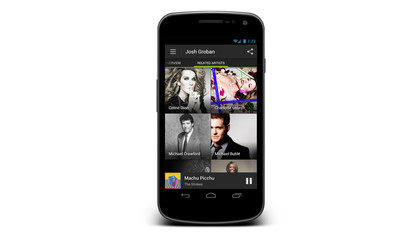Digital downloads: what you own - and what you don't
Get the facts on the digital download era
The content-owning industry is currently preventing this in the courts, and it's easy to see why; we're not talking dog-eared books or grimy CDs here; a second-hand digital file is as pristine and perfect as the day it was freshly zapped onto a server.
"Companies that have tried to establish the same regime for downloads as applied to physical goods have come under legal attack," says Scourfield. "For example, in the US, a company offering to sell 'second hand' MP3 downloads has been sued by one of the major record labels, challenging their entitlement to do so."
This followed a case in Europe over the ability of companies to offer 'used' business software, though arguments in favour of software being legal to sell-on if it's been completely removed from the original purchaser's computer have so far been rejected.
However, there are rumblings that selling-on copyrighted digital files might be possible one day, largely because that's how buying and selling has always been done. "There are hints that the rights holders are trying to have their cake and eat it," says Barnett, who thinks there's now a general agreement that the 'old' situation is what consumers want. "Ultimately the business world should support legal sales. It's part of the bargain of buying, and it has to work."
Does this lack of proper ownership cause piracy?

Copyright owners don't appear to think so, and tend to see piracy as a criminal act to be prevented at all costs, though some are starting to see it as a missed opportunity born of a business model that frustrates many of its its bona fide customers.
"Piracy is not a single behaviour, but rather motivated by a spectrum of behaviours that we call 'The Piracy Continuum'," says Doug Lowther, EVP Sales and Marketing at digital content security company Irdeto.
"Some piracy is based on criminals whose intent is illegal profits, others are individual hackers who seek notoriety or to damage their targets, but some are simply everyday consumers who would probably purchase legitimate alternatives if they were given the opportunity."
Get daily insight, inspiration and deals in your inbox
Sign up for breaking news, reviews, opinion, top tech deals, and more.
Notorious they might be, but the likes LimeWire, Megaupload, The Pirate Bay and anything to do with bittorrent aren't what's dogging the content owners; Harris Interactive reported in 2010 that 23 percent of people regularly download music illegally purely by using Google.
Overall, 28 per cent of internet users globally access unauthorised services on a monthly basis, according to the International Federation of the Phonographic Industry (IFPI), who say that around half of these are using peer-to-peer networks.
As demand for digital music and films goes up, bandwidth increases and the devices that play digital music, films and books spread through society, piracy will become even easier, argues Lowther, suggesting that legitimate services need to up their game and provide consumers with alternatives because most people would rather not spend their time hunting for content and downloading it from dodgy websites.
"The industry needs to get to grips with the reality that these types of 'piracy' are very different in nature and require very different responses," says Lowther.
Are we stuck with this broken business model?

"The business models being used are a knee-jerk reaction - they're trying to put analogue model in the digital space," says Barnett, "but because the digital space works differently and we interact with it differently, by and large they aren't working."
Take the ebook that comes in a locked format that can only be read by one registered device, a TV programme that can be downloaded and watched on a computer or phone, but bizarrely not on a TV, or the dreaded 48-hour expiry of a downloaded film, where a specific time is given for watching a purchased file.
None of these can be very easily consumed by the 'owner', let alone lent to friends or sold-on. What if your plane journey is shorter than the film, and it's expired by the time you get home? "It's a mad business model that doesn't reflect the way consumers behave," says Barnett.
"Illegal downloading sometimes is an attempt to avoid payment, but it could also suggest that there is some real market demand that is not being met," says Lowther, suggesting that concerns over formats and device compatibility frustrate many.
Can't we just use the cloud?
Could a model where everyone streams everything directly from the cloud solve both problems by making piracy pointless and digital ownership - or lack of - more obvious to consumers?
"The popularity of streaming services demonstrates a clear attempt by the media industry to try to move consumers away from a retained content model and towards an 'all you can rent' model," says Scourfield, though no single online service could ever host every book, film or song.
We're already aware of some 'cloud clowns' claiming to have deleted every ripped and purchased MP3 they have on their computers, stating 'I now only use Spotify'.
"Cloud services are brilliant, but as a consumer you should still have a concern," says Barnett, "You don't have a physical digital file and your cultural and social history is bound-up into someone else's business model, and whether that succeeds or fails."
Jamie is a freelance tech, travel and space journalist based in the UK. He’s been writing regularly for Techradar since it was launched in 2008 and also writes regularly for Forbes, The Telegraph, the South China Morning Post, Sky & Telescope and the Sky At Night magazine as well as other Future titles T3, Digital Camera World, All About Space and Space.com. He also edits two of his own websites, TravGear.com and WhenIsTheNextEclipse.com that reflect his obsession with travel gear and solar eclipse travel. He is the author of A Stargazing Program For Beginners (Springer, 2015),
